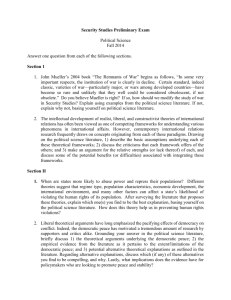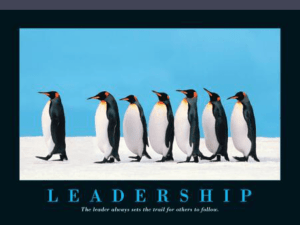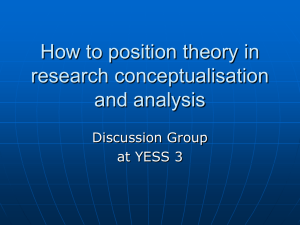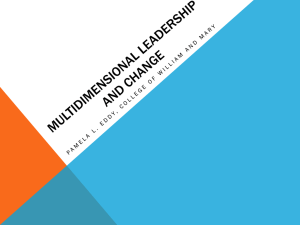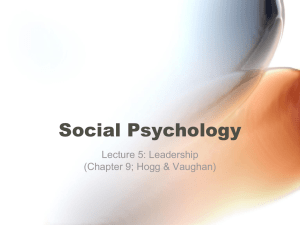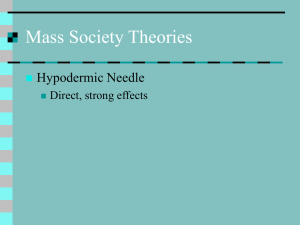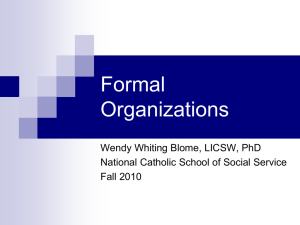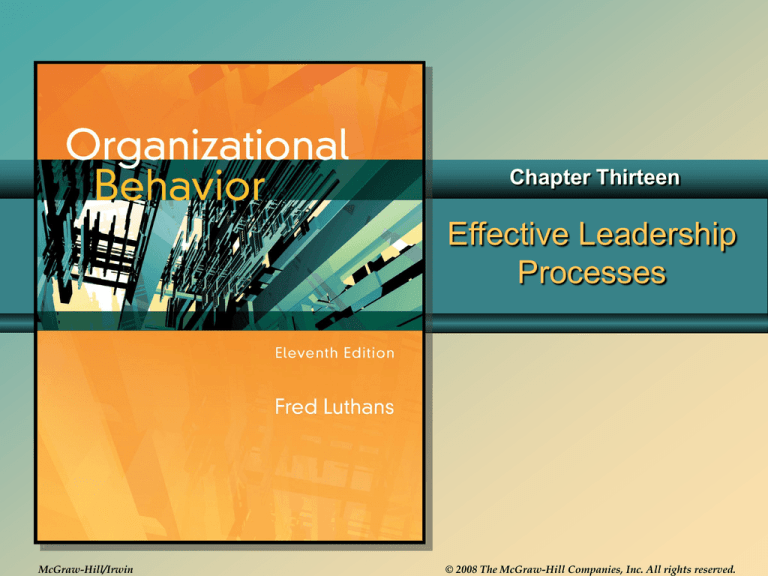
Chapter Thirteen
Effective Leadership
Processes
McGraw-Hill/Irwin
© 2008 The McGraw-Hill Companies, Inc. All rights reserved.
Learning Objectives
• Define leadership.
• Present the background and classic studies of
leadership.
• Discuss the traditional theories of leadership,
including the trait, group and exchange,
contingency, and path-goal approaches.
• Identify modern theoretical processes for leadership,
such as charismatic, transformational, social
cognitive, substitutes, and now authentic leadership.
• Examine leadership across cultures giving special
attention to the GLOBE project.
Introduction
• Leadership is the focus and conduit of
most of the other areas of organizational
behavior
What is Leadership?
• Has been controversial in terms of its
definition
– Leadership does remain pretty much of a
“black box,” or unexplainable concept.
What is Leadership?
Continued
• Characteristics of managers versus leaders
Historically Important Studies on
Leadership
• Iowa leadership studies
– Designed primarily to examine patterns of
aggressive behavior
• Ohio State leadership studies
– Started with the premise that no satisfactory
definition of leadership existed
• Early Michigan leadership studies
– Studies of leadership
Traditional Theories of Leadership
• Trait theories of leadership
– Five-factor model: “Big Five” personality traits
• From traits to states and skills
development
– Focused on skill development besides traits
Traditional Theories of Leadership
Continued
• Group and exchange theories of
leadership
– Followers’ impact on leaders
– Leader-member exchange (LMX) model
Traditional Theories of Leadership
Continued
• Three domains of leadership
– Leader-based
– Follower-based
– Relationship-based
Traditional Theories of Leadership
Continued
• Contingency theory of leadership
– Fielder’s contingency model of leadership
effectiveness
• Leader-member relationship
• Degree of task structure
• Leader’s position power
Traditional Theories of Leadership
Continued
– Fielder’s contingency model of leadership
effectiveness (continued)
Traditional Theories of Leadership
Continued
• Contingency theory of leadership (continued)
– Research support for the contingency model
• Methodologically sound validation studies have on
the whole provided substantial support for the
theory
– Fielder’s contingency theory in perspective
• First highly visible leadership theory
• Emphasized the importance of both the situation
and characteristics
• Stimulated a great deal of research
Traditional Theories of Leadership
Continued
• Path-goal leadership theory
– Directive leadership
– Supportive leadership
– Participative leadership
– Achievement-oriented leadership
Traditional Theories of Leadership
Continued
• Path-goal leadership theory (continued)
Modern Theoretical Processes of
Leadership
• Charismatic leadership theories
Modern Theoretical Processes of
Leadership Continued
• Transformational leadership theory
Modern Theoretical Processes of
Leadership Continued
• Social cognitive approach
Modern Theoretical Processes of
Leadership Continued
• Substitutes for leadership
– Subordinate characteristics
– Task characteristics
– Organizational characteristics
Modern Theoretical Processes of
Leadership Continued
• Authentic leadership
Modern Theoretical Processes of
Leadership Continued
• Leadership across cultures
– Personal Values
– Backgrounds of the managers
– Interpersonal skills
Modern Theoretical Processes of
Leadership Continued
• Project GLOBE and the future of international
leadership studies
– Identified cultural dimension
•
•
•
•
•
•
•
•
•
Power distance
Uncertainty avoidance
Humane orientation
Institutional Collectivism
In-Group Collectivism
Assertiveness
Gender egalitarianism
Future orientation
Performance orientation
Modern Theoretical Processes of
Leadership Continued
• Project GLOBE and the future of
international leadership studies (continued)
– Six leader attributes
•
•
•
•
•
•
Charismatic/ value-base
Team-oriented
Participative
Humane-oriented
Autonomous
Self-protective
Questions

